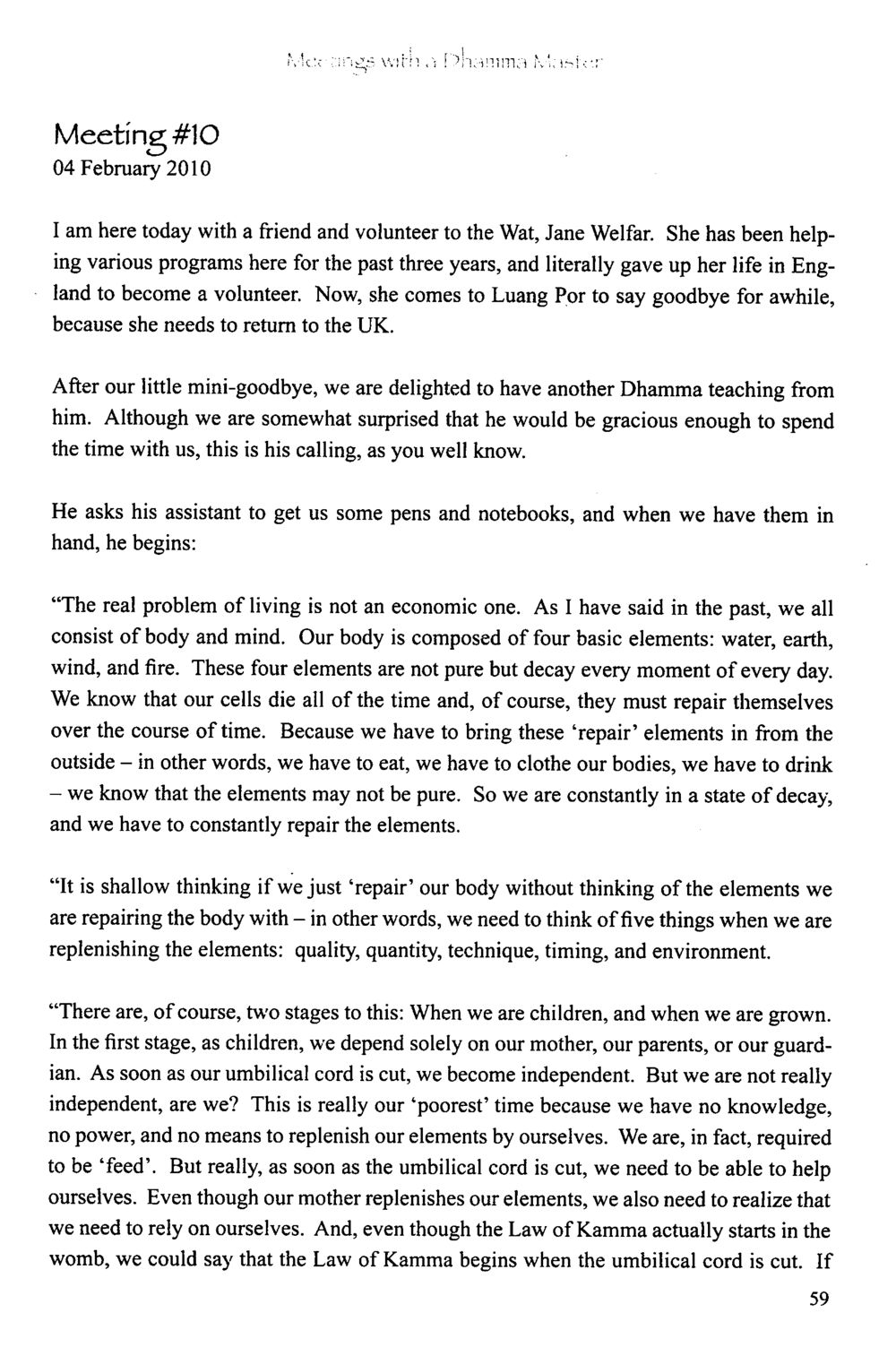Understanding the Dynamics of Body and Mind through Dhamma Teaching : หน้า 63/164
The Meeting with a Dhamma Master : หน้า 63/164 A reflection on the teachings of Luang Por regarding body and mind in relation to Dhamma, exploring life stages and the concept of Kamma.
1 ครั้ง

สรุปเนื้อหา
This meeting revolves around a farewell to a dedicated volunteer, Jane Welfar, who has devoted three years to assisting at the Wat. The discussion focuses on Luang Por's insights into the nature of existence, emphasizing that life is not merely about economics but about understanding the body and mind's relationship. He highlights that our bodies are in a constant state of decay and require meticulous thought regarding how we replenish our elements. This encompasses considerations of quality, quantity, technique, timing, and environment. Furthermore, he elucidates the importance of self-reliance that begins from the moment we are cut from our mothers, framing the transition to independence and the realization of Kamma's influence from that point onwards. The essence of these teachings stresses that being mindful of how we nurture our bodies is crucial throughout life, especially as we grow beyond childhood.
หัวข้อประเด็น
-Dhamma teachings
-Body and mind relationship
-Self-reliance and independence
-Concept of Kamma
-Life stages and nourishment
ข้อความต้นฉบับในหน้า
หน้าหนังสือทั้งหมด




































































































































































